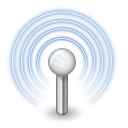What is the Six Strike Policy?
For one-and-a-half years now, we’ve been following the play-by-play of the “six strikes” plan set to hit the majority of American Internet users sometime this year.
The Copyright Alert System (CAS), as it’s formally known, is now set to come online this year. It’s been orchestrated by the Recording Industry Association of America (RIAA), the Motion Picture Association of America (MPAA), and major American ISPs, which are collected under an umbrella organization called the Center for Copyright Information (CCI).
Once in place, the CAS monitors Internet usage looking for traffic of unauthorized downloads. Then, users will be “educated” about legal alternatives. These individuals will have to acknowledge those warnings, and over time, they may have their Internet access throttled or may have legal charges brought.
But a new report and leaked document published last week by TorrentFreak suggests Verizon’s six strikes plan will also affect its business customers, beyond its regular residential customers. According to the Verizon document, once an accused infringer reaches the fifth and sixth warning stage, the Internet connection would be reduced to 256kbps for two to three days.
If true, that could potentially put a huge burden on small businesses—particularly cafés with open Wi-Fi hotspots. Any business with more than a few employees, therefore, could be unduly, collectively punished via their ISP simply because of the accused actions of one person. That’s far different from a small, contained home network, where there is only a small number of users at any given time—and likely, the one paying the bill knows all of them.
Notification and acknowledgement

Based on Verizon’s document, customers would receive first and second notification warnings “delivered by e-mail and automatic voicemail.” These would inform the customer “how to check to see if file sharing software is operating on your computer (and how to remove it) and tell you where to find information on obtaining content legally.”
The third and fourth warnings would “redirect your browser to a special webpage where you can review and acknowledge receiving the alerts,” then “provide a short video about copyright law and the consequences of copyright infringement.” Furthermore, the user would be required to click an “acknowledgement” button. But the fifth and sixth warnings would lead to a speed slowdown.
However, it’s not hard to imagine a scenario—a Wi-Fi café, for instance—where someone using an open network has been downloading unauthorized copies of Game of Thrones, and the café owner (or another customer, for that matter) is faced with these warnings and the acknowledgement splash page. Why should the café (and its customers) be penalized with a bandwidth slowdown, rather than the alleged infringer herself?
What you should you do to prevent this?
If you have a small business providing free guest wireless to your customers it is important that you contact SNECS Before you receive a Six-Strike notice from Cox or Verizon instead of after. Also if you think your employee’s could be downloading music, movies on a company internet connection we can provide solutions to disable these sort of things on your network.
Article via http://arstechnica.com
